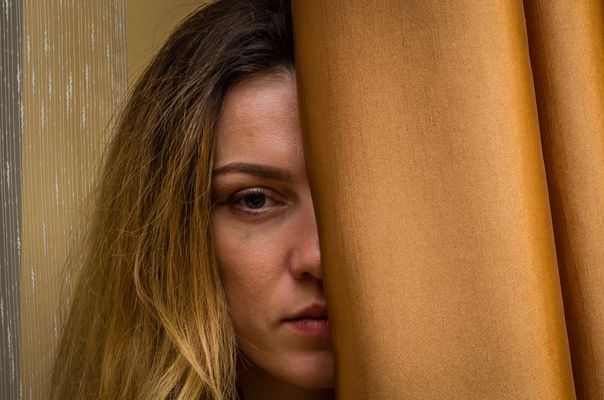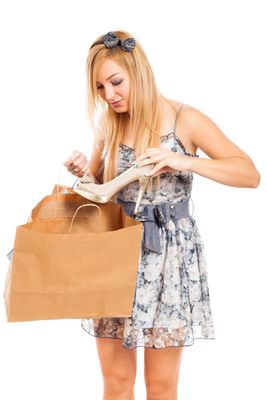

An Inspector Calls – Full Mark Essay L9 / A* grade
This is an example of a high grade A* / L9 essay for ‘An Inspector Calls’.
It was completed by myself, not in timed conditions, to set an example for high achieving students, so it is beyond the requirement of a high grade for GCSE. However, students are encouraged to read it and deconstruct it to get ideas for their own essays and structuring – it is also useful in terms of learning how to develop a sophisticated approach to essay phrasing, techniques, and vocabulary. I hope you enjoy reading it and find it helpful!
If you find this page useful you can take a look at our full ‘An Inspector Calls’ course here .
How does Priestley explore the issue of class in An Inspector Calls?
Class is arguably one of the central issues presented in the play, as it is because of her lower-class that Eva Smith is able to be so badly exploited, which leads to her tragic suffering and eventual suicide despite her intelligence, beauty, and kindness. We are exposed to the privileges that upper and middle-class men and women have, as well as the fact that they don’t always realise that they have greater opportunities and stability. As a socialist, Priestley certainly viewed the division between classes as a serious issue in his postwar society; the play ultimately tries to convey his message of social responsibility in order to minimise these rifts between the different classes.
According to Priestley, the upper classes cause issues in society due to their blind privilege. Gerald Croft, for instance, is an aristocrat whom Priestley describes as an ‘easy well-bred young man-about-town’. Priestley depicts Gerald as having an ‘easy’ lifestyle and demeanor due to his privileged social position; as a prominent up and coming businessman whose family are successful business owners, it could be argued that he has been handed his freedom and success without much effort or difficulty. The compound adjective ‘well-bred’ in particular displays Priestley’s socialist beliefs, as it implies that he is aware of yet disagrees with the fact that breeding is highly valued by the postwar British society and perhaps that family connections are more important than a person’s own character or intelligence; Sheila is only engaged to Gerald, after all, because Mr. Birling wants to secure business connections. Gerald’s flagrant exploitation of Eva’s kindness and beauty whilst being engaged to Sheila creates a layer of dramatic irony which criticises the idea that marriage for business purposes or family reasons is ever a positive or viable option. Though it could be argued that Gerald is a more sympathetic character than Sybil, he still demonstrates how the upper classes are so privileged and used to manipulate those around them that they are not even fully conscious of their behaviour. His excuse of continuing the affair with Eva because he felt ‘sorry for her’ could be interpreted as sensitivity, but it is likely that Priestley wanted to show instead how it demonstrates false sympathy, as he was only prepared to help Eva so long as she provided him with the affection that he craved. Additionally, Sybil as another upper-class figure demonstrates a different kind of high-class privilege: under the pretense of being charitable as she works for the ‘Brumley Women’s Charity’, using her prominent position in society to help only those she feels are deserving because they align with her own beliefs and values. She refuses to help Eva because she did not agree with Eva’s ‘elaborate fine feelings … that were simply absurd for a girl in her position’. The alliteration of ‘fine feelings’ emphasises Sybil’s snide superiority in that she is prejudiced towards Eva’s sensitivity and considers herself able to feel and experience more complex emotions than a lower class ‘girl’, a further diminutive term that underscores Sybil’s authoritative position and Eva’s own powerlessness in the situation where she is forced to finally seek charitable help after being thrown into a series of increasingly unfortunate positions. Therefore, whether they are consciously or unconsciously aware of their actions, the upper-class characters in the play are shown to manipulate the lower classes by abusing their privileged position; this demonstrates an inherent hierarchical structure in mid 20th-century British society which Priestley challenges and rejects. As a social realist play, the narrative represents a real-life situation that is familiar and known to the audience, so Priestley’s audience would have been aware of people holding the same values as Sybil and Gerald, looking down on lower classes or feeling like they could just exploit them as they pleased. In this way, Priestley asks his audience to question the fundamental beliefs of his society, by showing that they are not based on kindness and empathy, but instead superiority and oppression.
An Inspector Calls: Character Revision
Although Priestley exposes the problems with the upper classes in the play, he also draws equal attention to the plight of the lower classes. This is primarily shown through the character of Eva Smith, who is arguably less of an individual person and more of an everywoman or symbol for the exploited lower class workers: her name ‘Eva’ is a Biblical allusion to Eve, the first woman created by God in the book of Genesis, and her surname ‘Smith’ is the most common surname in Britain. The symbolism of Eva’s name also shifts as her situation deteriorates; being forced out of work several times, she changes her name to ‘Daisy Renton’, the surname perhaps suggesting the idea of a ‘rent girl’ or prostitute. Interestingly, the Inspector describes Eva as a ‘young woman’; the concrete noun ‘woman’ implies his respect for her regardless of her lower-class position. In contrast, the other characters refer to her using belittling or derogatory language, Sybil calls her a ‘wretched girl’, the adjective ‘wretched’ perhaps implying a double meaning of ‘doomed’ but also ‘repulsive’, once again highlighting Sybil’s upper-class snobbery. Arthur Birling also refers to her patronisingly as a ‘lively good-looking girl’ who ultimately ‘only had herself to blame’. Though the compound adjective ‘good-looking’ could be interpreted as a compliment, the audience feels that it is somewhat off-putting and patronising coming from a character such as Mr. Birling, who is in such a position of authority and privilege as a business owner relative to Eva being a mere worker who is replaceable and expendable in his eyes. The concept of ‘blame’ is pushed increasingly away from the lower classes as the play progresses when the Inspector, acting as a mouthpiece for Priestley’s own socialist views, exposes all of the Birling family and Gerald too to be partially culpable, doing so through the prop of the ‘photograph’ which he shows, in turn, to each family member before exposing their encounters with Eva. The fact that nobody sees the photograph at the same time heightens the dramatic tension of the play, and its importance as a plot device is underscored at the end when Gerald points out that ‘There were probably four or five different girls’, ironically failing to recognise that the statement is irrelevant because it still demonstrates that each family member acted exploitatively towards a lower-class person, even if they were different people in the end. Ultimately the Inspector’s fire-and-brimstone speech where he declares that there are ‘millions and millions of Eva Smiths and John Smiths’ reinforces to Priestley’s audience the irrelevance of whether Eva is an individual or a symbol, as the point remains that the continual exploitation of lower-class workers by upper and middle classes results in mass suffering and oppression.
However, Priestley does not only criticise the upper and middle classes, as his audience is educated and themselves part of those upper levels in society, he instead demonstrates their potential for change. Both Sheila and Eric certainly affect Eva’s life negatively, but crucially they demonstrate an acceptance of those and show remorse as well as a willingness to be more socially conscious in the future. Sheila outwardly admits her faults to the Inspector: ‘I know I’m to blame – and I’m desperately sorry’, causing the audience to sympathise with her and realise that as she was young, she was perhaps merely copying the behaviour of her mother when showing jealousy and cruelty towards Eva in the department store. Eric arguably is one of the worst characters in terms of his effect on Eva’s life; as an alcoholic who likes to get ‘squiffy’, he is shown to be irresponsible and selfish, to the point where he impregnates Eva and then abandons her. Yet he also shows maturity at the end, stating ‘The fact remains, I did what I did’ – the repetition of ‘did’ in the past tense perhaps emphasises that he is now going to change for the better and become a more considerate man rather than a selfish boy. Overall, the younger generation’s willingness to engage with the Inspector’s message is presented as positive, and they symbolically represent Priestley’s hope that future generations will be more kind and considerate towards one another.
Finally, Priestley uses the tensions between classes as a way of promoting his wider anti-capitalist and pro-socialist political stance. As a socialist, he believes that the typical views of a capitalist society where, as Arthur puts it, ‘a man must look after himself and his own’ are outdated and damaging to the population as a whole, because individuals feel no greater sense of responsibility to the wider community. The reflexive pronoun ‘himself’ and the possessive pronoun ‘his’ also underscore the selfishness that Priestley feels is inherent within capitalism, as in his view it encourages an individualist and anti-collectivist mentality that rewards people for selfish behaviour and discourages them from altruistic or compassionate behaviour. Arthur’s views are directly juxtaposed with the Inspector’s own, particularly towards the end of the play when he becomes more forceful with his opinions. He concludes that ‘we are all members of one body’, using the collective pronoun ‘we’ to reflect his universal perspective of being interconnected with all other individuals in society. The metaphor ‘members of one body’ further reinforces his socialist perspective, as it suggests that each individual is connected to a greater whole – perhaps also referencing Priestley’s own Christian beliefs about harmony within communities and taking care of others, particularly those less fortunate than ourselves. Though in modern British society it is common to be equally exposed to both capitalist and socialist perspectives, when the play was written in 1945 the Labour Party – of whom Priestley himself was a prominent member – had just won over the Conservative Party for the first time in history. Therefore, Priestley’s audience themselves were less accustomed to socialist opinions, and many of them continued to uphold the prewar Edwardian and even Victorian attitudes of class separation, rather than wanting to create a progressive society that encouraged equality between classes. By setting the play in 1912 but writing and performing it in 1945, Priestley also uses this time difference to demonstrate that views such as Mr and Mrs Birling’s are outdated in the modern world, encouraging his audience to distance themselves from a capitalistic mentality and instead embrace a more socialist and equalist approach to life. This double setting also allows Priestley to reinforce the absurdness of some of Arthur’s views – for instance, he declares that the Titanic is ‘absolutely unsinkable’; his assertive and confident tone is entirely undermined for Priestley’s audience by the situational irony that the Titanic sank soon after Mr. Birling made that statement. The effect is to demonstrate Mr. Birling’s idiocy as a whole and to deter the audience from believing his capitalist attitudes, as he is clearly so wrong about his other beliefs.
In summary, Priestley treats the issue of class as integral to the plot of ‘An Inspector Calls’. He criticises the upper and middle classes for their lack of awareness of their privileges and their misinformed judgment of the lower classes in an effort to create a harmonious future society where the problems of class difference and class oppression are greatly minimised, or ideally no longer exist. This is demonstrated within a political framework, in which the Inspector’s socialist views are encouraged in the audience, whereas Mr. Birling’s capitalist views are discouraged. Finally, Sheila and Eric, as younger generation characters, exemplify Priestley’s hope for the future as they show the potential to think for themselves and no longer just copy the entrenched values of their parents.
Thanks for reading! If you found this page useful you can take a look at our full ‘An Inspector Calls’ course , as well as ‘ An Inspector Calls: Story Summary ‘, where we break down Act by Act for easier understanding!
Related Posts

The Theme of Morality in To Kill A Mockingbird

Unseen Poetry Exam Practice – Spring

To Kill A Mockingbird Essay Writing – PEE Breakdown

Emily Dickinson A Level Exam Questions

Poem Analysis: Sonnet 116 by William Shakespeare

An Inspector Calls – Official AQA Exam Questions

The Dolls House by Katherine Mansfield: Summary + Analysis

An Occurrence At Owl Creek Bridge: Stories of Ourselves:

How to Get Started with Narrative Writing

Robert Frost’s Life and Poetic Career
© Copyright Scrbbly 2022
Social Class & Equality
Lower-class characters: eva and edna.
In An Inspector Calls , J.B. Priestley focuses on the different social classes and how they experience life differently. The play focuses on upper-class characters: the only lower-class characters are Eva Smith and Edna (the maid).

- We hear all about Eva's life and how she has suffered because of members of the upper-middle and upper classes.
- These people did not care about the consequences their actions may have had for lower-class people.
- All the characters treat Eva Smith as someone disposable (they can get rid of) and unimportant purely because she is lower-class. They don’t think she is worthy of their time or thought.

- We only see Edna a few times, each for a brief moment.
Upper-Middle-Class Characters - Birlings
Priestley shows how the upper classes generally only cared about themselves, their reputations, and how life affected them. The play centres on upper-middle-class characters, like Sheila, Eric and Mr Birling:

- E.g. fashion and clothing.
- She spends her father’s money to make herself look the part – her role is to look good so she makes her father and her future husband look good. She is an ornament (object of decoration).
- She is presented as a spoilt child at first, who uses her social status to get what she wants.

- He spends his time gambling and drinking too much.
- Because of his social status, he does not have to work for a living. He lives off his father’s money.
- He is presented as an immature, irresponsible little boy for most of the play.

- He is pleased about his daughter marrying into the upper class because it strengthens his ties with Lord and Lady Croft. It also improves his social status.
- He is keen to be knighted (given a rank of honour by a British king or queen because of his special achievements) and accepted into the upper class.
- He is worried about possible scandals (morally wrong events) that will stop this happening.
Upper-Class Characters - Gerald and Mrs Birling
In An Inspector Calls , J.B. Priestley shows that many upper-class people lived superficially (appearing to be true) happy lives. He tries to show that they did not know about the hard lives led by the lower classes or how much upper-class lives depended on lower-class workers. The play centres on upper-class characters, like Gerald and Mrs Birling:

Mrs Birling
- She has a higher social status than her husband.
- She gently tells him off for his improper (not in line with social standards) comments at the dinner table. She sees these as unsuitable dinner conversation.
- She has a position in a charity because it makes her look good.
- She doesn’t like Eva from the start because she pretends her name is Mrs Birling. Mrs Birling thinks this is incredibly offensive (possibly because of Eva’s lower-class position ruining her name) and refuses to help her.

- He highlights the selfish attitudes of the upper class at the time.
- After Sheila finds out, Gerald still feels that they should get married. This shows his selfish nature.
- By the end of the play, the audience hopes that Gerald will change his attitude, like Sheila and Eric did.
- But he shows the selfish egotism (self-absorbed attitude) of the upper class when he does not change.
- Instead, he tries hard to do everything he can to prove that Inspector Goole was fake and that he and the Birlings were completely innocent.
1 Plot Summary
1.1.1 Act 1 Summary
1.1.2 Act 1 Key Quotes
1.2.1 Act 2 Summary
1.2.2 Act 2 Key Quotes
1.3.1 Act 3 Summary
1.3.2 Act 3 Key Quotes
1.3.3 Act 3 More Key Quotes
1.3.4 End of Topic Test - Acts 1, 2 & 3
2 Context & Key Themes
2.1 Context & Key Themes
2.1.1 Social Class & Equality
2.1.2 Class Tension
2.1.3 Abuse of Power & Corruption
2.1.4 Socialism vs Capitalism
2.1.5 Blame & Responsibility
2.1.6 Attitudes to Women
2.1.7 Characterisation of Women
2.1.8 Dramatic Function of Characters
2.1.9 End of Topic Test - Context & Key Themes
2.1.10 End of Topic Test - Context & Key Themes 2
2.1.11 Grade 9 - Key Themes
3 Key Characters
3.1 Mr Birling
3.1.1 Mr Birling Analysis
3.1.2 Mr Birling Quotes
3.2 Mrs Birling
3.2.1 Mrs Birling Analysis
3.2.2 Mrs Birling Quotes
3.2.3 Exam-Style Questions - Mrs Birling
3.3.1 Sheila Analysis
3.3.2 Sheila Quotes
3.3.3 End of Topic Test - The Birlings & Sheila
3.4.1 Eric Analysis
3.4.2 Eric Quotes
3.5.1 Gerald Analysis
3.5.2 Gerald Quotes
3.6 Inspector Goole
3.6.1 Inspector Goole Analysis
3.6.2 Inspector Goole Quotes
3.6.3 End of Topic Test - Eric, Gerald & Inspector Goole
3.7 Grade 9 - Key Characters
3.7.1 Grade 9 - Key Characters
4 Authorial Method
4.1 Arrangement & Structure of the Play
4.1.1 Setting, Lighting & Dramatic Irony
4.1.2 Structure & Chronology
4.1.3 Structure & Chronology 2
4.1.4 End of Topic Test - Authorial Method
Jump to other topics

Unlock your full potential with GoStudent tutoring
Affordable 1:1 tutoring from the comfort of your home
Tutors are matched to your specific learning needs
30+ school subjects covered
End of Topic Test - Acts 1, 2 & 3
Class Tension

An Inspector Calls
J. b. priestley, everything you need for every book you read..
Welcome to the LitCharts study guide on J. B. Priestley's An Inspector Calls . Created by the original team behind SparkNotes, LitCharts are the world's best literature guides.
An Inspector Calls: Introduction
An inspector calls: plot summary, an inspector calls: detailed summary & analysis, an inspector calls: themes, an inspector calls: quotes, an inspector calls: characters, an inspector calls: symbols, an inspector calls: theme wheel, brief biography of j. b. priestley.


Historical Context of An Inspector Calls
Other books related to an inspector calls.
- Full Title: An Inspector Calls
- When Written: 1945
- Where Written: England
- When Published: 1945 (play premiered in Soviet Union)
- Literary Period: mid-20th century British drama, social realism
- Genre: Mystery drama
- Setting: 1912; a comfortable home in Brumley, England
- Climax: Gerald returns to the Birling home after Goole has left, to report that the Inspector wasn’t actually a real inspector, and to hypothesize that the whole thing was a hoax—that there was no single girl that all of the Birlings had offended, and no suicide that they precipitated.
Extra Credit for An Inspector Calls
Ghoulish Goole. Many interpretations of the text consider the Inspector’s ghostly name to be symbolic of the mystery that surrounds his character.

Social Class
Use this player and a teacher will talk you through this page....
Class has its roots in the opportunities you are given at birth - children from rich homes are given more opportunities than those from poorer backgrounds which means that, often, people from wealthier backgrounds go on to be more successful.
However, priestley believed that this was wrong and didn't reflect anyone's actual ability. in this play, he encourages us to look beyond class and see a society where everyone can be treated with respect., class at the dinner table:, though the play is primarily about the horrendous treatment of the lower classes by those who are wealthier than them, class divisions are clear right from the opening. the social divides and aspirations are evident around the dinner table:, mr birling has made his own money and, although he's rich, he doesn't have his wife's aristocratic roots. he dreams of marrying his daughter into the aristocracy and hopes of a knighthood for himself., mrs birling is a former aristocrat, but she is also a snob and we can't help but feel that she would have resented marrying a man who was her social inferior. she looks down quite aggressively at those who she deems as being from "that class.", gerald croft has the highest social standing at the table (as a man, and a member of the aristocracy) but mr birling clearly hopes that gerald's marriage to sheila will raise the social standing of the whole family. although birling lectures him, there is a real sense that he's desperate to be liked by gerald as well - the bit where he privately talks about his knighthood is a great example, eva smith and class, most of the play, however, is about the treatment of the working class eva smith / daisy renton by those above her, and each of the characters mistreats her in their own way:, mr birling casually fires her for trying to win a pay-rise for her and her colleagues. he can do this because he owns the business., sheila has her fired from her job, because she was jealous at how pretty eva was. she can do this because she's rich and the shop want to pander to her needs., gerald takes advantage of her situation - she was starving when he met her - and then uses her for sex, before casually dropping her when he's done. he can do this because he's rich and has a "spare house" she can live in., mrs birling was so offended that she used the birling name that she refused to help her. she can do this because she's rich and controls the decision over who gets support from her charity., like gerald, eric used her for sex (the suggestion is that he raped her.) he got away with this because by the time eva met him she had been so brutally treated by everyone else that she had no-where else to go., all the characters mistreat eva simply because they can., the inspector and class, the inspector, however, represents the newly formed middle class, a group who were educated and often had the law on their side. the inspector sees to it that the family do not get away with their treatment of eva without being forced to face what they have done., while the family see someone from eva's class as being something "other" the inspector makes them see that "we are all part of one body" and "we are all responsible for each other.", key quotes and moments from the play, “ perhaps i ought to warn you that the inspector is an old friend of mine, and that i see him fairly frequently .” mr birling trie s to bull y the inspector by using his relationship with other upper class men . the inspector is not impressed., mr birling sees eva as just one of “ several hundred young women ” who worked at his factory - he says " i don't know, they keep changing ." this highlights the vulnerability of the working class in those times, something that was socially acceptable., mrs birling’s snobbery develops to a point later in the play when she calls eva a “ girl of that sort. ” she represents the ignorant, older generation who still cling on to the class system that put them in then position they were in., mrs birling also refers to eva saying " girls of that class " - the determiner " that " really highlights how she sees the working classes as being fundamentally different to her., mr birling is keen to be knighted to cement his hard-fought rise to the upper class., birling, like a lot of the upper classes, simply uses eva smith as cheap labour - shei la argues against this recognising that there is more to eva than just her class - " but they're not cheap labour, they're people .", sheila used her position as some from the upper classes when she became jealous of eva's good looks and had her fired from milwards ., gerald is prepared to marry sheila , beca use she was of a similar class to him; eva, however, was of a much lower class than gerald and so he used her when he wanted to and then discarded her when he was done., eric is awkward about his " public-school-and-varsity " life, and , like sheila he has been " spoilt " by his parents to the extent that he has never grown up. in the end, eva patronises him for being childish because he has been so protected by his class that he has never grown up ., mrs birling was disgusted that someone socially inferior to her used her name and used this as a reason to pun ish someone she was prejudiced against ..
We are aware of some issues with pdfs on the website after last night's update. Some should now be fixed and others will be later today.

An Inspector Calls

Royal Central School of Speech & Drama - MA Performance Practice & Research
Experienced English Tutor and Professional Playwright and Poet.
Notes || Exam Prep || Character Profiles || Themes || Additional Reading & Videos
This topic is included in Paper 2 . You can find notes and guides for it below.
- Overview and Key Scenes
- Glossary of Key Terms
- Definitions Flashcards
- Guide to Paper 2
- How to plan and write a top mark essay
- Question Bank - Characters
- Question Bank - Relationships
- Question Bank - Themes
Additional Reading & Videos:
- An Inspector Calls (2017 film version)
- An Inspector Calls (1982 film version)
- An Introduction to An Inspector Calls
Character Profiles
- Eric Birling
- Gerald Croft
- Mrs Birling
- Sheila Birling
- The Inspector
- Capitalism vs Socialism
- Exploitation
- Generations Young vs Old
- Social Class
- Social Responsibility
- Wealth and Materialism
Connect with PMT Education!
- Revision Courses
- Past Papers
- Solution Banks
- University Admissions
- Numerical Reasoning
- Legal Notices
Mr Salles Teaches English

Full Mark An Inspector Calls Essay, from Jo Jo Mooc

Mr Salles Teaches English is a reader-supported publication. To receive new posts which help you get top grades, consider becoming a free or paid subscriber.
Writing about the characters as constructs is a sure fire way to let the examiner know that you are writing about the author’s ideas - as characters are constructed for a reason - to illustrate an idea.
This is a strong thesis statement, because it immediately explains what Priestley’s intention or idea is. There are 2: exploitation and death of millions of the working class.
Death is going a bit far, but the examiner doesn’t seem to object!
I prefer the thesis statement to be a paragraph on its own, but the examiner is not fussed about this either.
The next great skill is that Jo Jo launches into writing about quotes immediately. This is what gets Level 4 for AO1.
Jo Jo has also named a method - juxtaposition, so the examiner is already impressed.
Paid subscribers get a top grade answer, with my marking, every week.
They also get access to the 55+ already published.
Keep reading with a 7-day free trial
Subscribe to Mr Salles Teaches English to keep reading this post and get 7 days of free access to the full post archives.
1555 Lakeside Drive, Oakland
Extra spacious rarely available courtyard facing unit at the Lakeside…
- Password reminder
- Registration
Jam Operasional (09.00-17.00)
+62 813-1717-0136 (Corporate) +62 812-4458-4482 (Recruitment)
Article Sample
- bee movie script
- hills like white elephants
- rosewood movie
- albert bandura
- young goodman brown
Will I get caught if I buy an essay?
The most popular question from clients and people on the forums is how not to get caught up in the fact that you bought an essay, and did not write it yourself. Students are very afraid that they will be exposed and expelled from the university or they will simply lose their money, because they will have to redo the work themselves.
If you've chosen a good online research and essay writing service, then you don't have to worry. The writers from the firm conduct their own exploratory research, add scientific facts and back it up with the personal knowledge. None of them copy information from the Internet or steal ready-made articles. Even if this is not enough for the client, he can personally go to the anti-plagiarism website and check the finished document. Of course, the staff of the sites themselves carry out such checks, but no one can forbid you to make sure of the uniqueness of the article for yourself.
Thanks to the privacy policy on web platforms, no one will disclose your personal data and transfer to third parties. You are completely safe from start to finish.

How Our Paper Writing Service Is Used
We stand for academic honesty and obey all institutional laws. Therefore EssayService strongly advises its clients to use the provided work as a study aid, as a source of ideas and information, or for citations. Work provided by us is NOT supposed to be submitted OR forwarded as a final work. It is meant to be used for research purposes, drafts, or as extra study materials.


Specifically, buying papers from us you can get 5%, 10%, or 15% discount.
Definitely! It's not a matter of "yes you can", but a matter of "yes, you should". Chatting with professional paper writers through a one-on-one encrypted chat allows them to express their views on how the assignment should turn out and share their feedback. Be on the same page with your writer!
Finished Papers
Customer Reviews
Sharing Educational Goals
Our cheap essay service is a helping hand for those who want to reach academic success and have the perfect 4.0 GPA. Whatever kind of help you need, we will give it to you.
offers three types of essay writers: the best available writer aka. standard, a top-level writer, and a premium essay expert. Every class, or type, of an essay writer has its own pros and cons. Depending on the difficulty of your assignment and the deadline, you can choose the desired type of writer to fit in your schedule and budget. We guarantee that every writer will be a subject-matter expert with proper writing skills and background knowledge across all high school, college, and university subjects. Also, we don’t work with undergraduates or dropouts, focusing more on Bachelor, Master, and Doctoral level writers (yes, we offer writers with Ph.D. degrees!)
- Human Resource
- Business Strategy
- Operations Management
- Project Management
- Business Management
- Supply Chain Management
- Scholarship Essay
- Narrative Essay
- Descriptive Essay
- Buy Essay Online
- College Essay Help
- Help To Write Essay Online
Getting an essay writing help in less than 60 seconds
Finished Papers
1035 Natoma Street, San Francisco
This exquisite Edwardian single-family house has a 1344 Sqft main…

Andre Cardoso
Gustavo Almeida Correia

Sharing Educational Goals
Our cheap essay service is a helping hand for those who want to reach academic success and have the perfect 4.0 GPA. Whatever kind of help you need, we will give it to you.
Advanced essay writer

IMAGES
VIDEO
COMMENTS
The Inspector is used as a figure of morality; he is there to make the family realise that they have an easy life resting upon the hard and difficult work of the lower class. As JB Priestley was a socialist and a founder of the Socialist Commonwealth Party, he wanted to see the collapse of the class system. The Inspector tries to make the other ...
This is an exemplar An Inspector Calls essay - Grade 9 GCSE standard - based upon the AQA English Literature June 2018 exam question. The essay analyses the importance of social class in the play. The An Inspector Calls essay has been well structured and would achieve full marks - the equivalent of a Grade 9.
Social class influences a lot of what happens in the play. In 1912, class divided Britain. The land and factory owners were wealthy and powerful, while their workers lived in poverty. The two classes rarely interacted. The Birlings' treatment of Eva is a result of their being an upper class family and her being a working class woman.
EXAMPLE INTRO: Responsibility is a very important theme in An Inspector Calls, as the Inspector reveals one by one that all the Birling family are partly responsible for Eva's death. Eva represents the lower classes, and Priestley uses the tragic ending of her character to spread his message about social responsibility, a message which is ...
This is an example of a high grade A* / L9 essay for 'An Inspector Calls'. It was completed by myself, not in timed conditions, to set an example for high achieving students, so it is beyond the requirement of a high grade for GCSE. However, students are encouraged to read it and deconstruct it to get ideas for their own essays and ...
'An Inspector Calls' was set in 1912, a time in which society was divided by not only gender but by social class. Priestley wants the middle and upper classes to transform from abusing their power to dominate and exploit the working class to instead being more responsible for their actions and treating people more sympathetically .
Tutors are matched to your specific learning needs. Book a free trial lesson. In _An Inspector Calls_, J.B. Priestley focuses on the different social classes and how they experience life differently. The play focuses on upper-class characters: the only lower-class characters are Eva Smith and Edna (the maid).
Paper 2 is worth 96 marks and accounts for 60% of your overall GCSE grade. The An Inspector Calls essay is worth 34 marks in total, because it also includes 4 marks for spelling, punctuation and grammar. Section A of Paper 2 contains the An Inspector Calls question and you are required to answer one question on the play from a choice of two.
Studying 'An Inspector Calls'? Dr Aidan, PhD, analyses the theme of 'social class' in J. B. Priestley's An Inspector Calls, along with key quotes and in-dept...
In An Inspector Calls, Priestley explores the importance of social class by emphasizing the precarious social position of the Birlings, who have recently become rich and are attempting to buy ...
Paragraph 2: Priestley shows the real difference between the social classes when the audience learn of the Birlings' treatment of Eva Smith, the first working-class character in the play. Paragraph 3: Priestley shows the hypocrisy of Edwardian society through the difference between the way the upper-middle class Birling family treat each ...
Key Facts about An Inspector Calls. Full Title: An Inspector Calls. When Written: 1945. Where Written: England. When Published: 1945 (play premiered in Soviet Union) Literary Period: mid-20th century British drama, social realism. Genre: Mystery drama. Setting: 1912; a comfortable home in Brumley, England.
GCSE; AQA; Themes - AQA Class in An Inspector Calls. A theme is an idea that runs throughout a text. In An Inspector Calls, the themes of social responsibility, age, gender and class are explored.
Gerald Croft has the highest social standing at the table (as a man, and a member of the aristocracy) but Mr Birling clearly hopes that Gerald's marriage to Sheila will raise the social standing of the whole family. Although Birling lectures him, there is a real sense that he's desperate to be liked by Gerald as well - the bit where he privately talks about his knighthood is a great example
MA English Literature graduate from the University of Leeds. £25 / hour. Graduate. Book Tutor. Final exams on the horizon? Kick-start your revision with our 2-day AQA English Language and 1-day Macbeth online GCSE Easter revision courses. Check them out now! This topic is included in Paper 2. You can find notes and guides for it below.
Jo Jo has prepared this in advance. Because it is linked to the Inspector's final words, he (and you) could be confident it will fit every single essay. It is probable that the examiner has not considered the symbolism of the two deaths of Eva, which is why there are no AO3 annotations.
1558 Words. 7 Pages. Open Document. Written in the aftermath of the Second World War, Priestley's Well Made Play, An Inspector Calls, highlights the author's contempt towards the Edwardian values held in the prior decades, presenting his didactic message and promoting the idea of a social conscience and responsibility in a new and progressive ...
An Inspector Calls Social Class Essay. 14550 +. REVIEWS HIRE. 12 Customer reviews. 1 (888)814-4206 1 (888)499-5521. User ID: 102732.
An Inspector Calls Social Class Essays. On the order page of our write essay service website, you will be given a form that includes requirements. You will have to fill it up and submit. The second you place your "write an essay for me" request, numerous writers will be bidding on your work. It is up to you to choose the right specialist for ...
A standard writer is the best option when you're on a budget but the deadline isn't burning. Within a couple of days, a new custom essay will be done for you from the ground up. Unique content, genuine research, spot-on APA/MLA formatting, and peerless grammar are guaranteed. Also, we'll provide you with a free title page, bibliography ...
An Inspector Calls Social Class Essays, Ut Austin Supplement Essays Word Count, Insurance Producer Resume Example, How To Write In Third Person Format, Literary Analysis Of Lines Written In Early Spring, Literature Review Plasma, Case Study Research Strategy Definition
An Inspector Calls Social Class Essay. Discuss the details of your assignment and rest while your chosen writer works on your order. KONTAK KAMI. 100% Success rate. Don't let boring assignments ruin your plans. Hire an expert in the required discipline, relax, and wait for the results to arrive. We are versatile and can handle any academic ...
Free essays. Receive your essay and breathe easy, because now you don't have to worry about missing a deadline or failing a course. ID 12417. On-schedule delivery. Compliance with the provided brief. Chat with your helper. Ongoing 24/7 support. Real-time alerts. Free revisions.